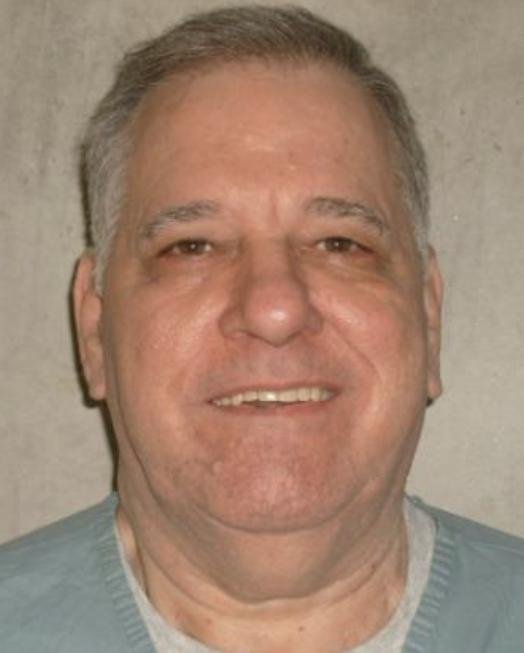Bigler Stouffer was executed Thursday for the 1985 slaying of Putnam City teacher Linda Reaves. File Photo courtesy of the Oklahoma Department of Corrections
Dec. 8 (UPI) -- Oklahoma executed death row prisoner Bigler Jobe "B.J." Stouffer on Thursday morning after the Supreme Court declined to issue a stay in the case.
Stouffer, 79, was sentenced to death for the murder of Putnam City teacher Linda Reaves in 1985. He also shot Doug Ivens, who survived the attack but died in 2016.
"The state's execution of Bigler Stouffer was carried out with zero complications at 10:16 this morning," a statement from Oklahoma Attorney General John O'Connor said. "Justice is now served for Linda Reaves, Doug Ivens and the people of Oklahoma."
Stouffer had asked the Supreme Court to halt his execution Tuesday, one day after the 10th U.S. Circuit Court of Appeals denied a stay request. The Supreme Court ruled against the stay Thursday morning.
His lawyers sought to delay the execution in response to a lawsuit by a group of death row inmates challenging Oklahoma's lethal injection protocol. In their motion to the Supreme Court, the lawyers said former Attorney General Mike Hunter promised not to carry out executions while the case was playing out in the courts.
"Less than three months ago the state of Oklahoma decided to disregard its longstanding, clear and unambiguous promise not to schedule executions in Oklahoma until challenges as to the constitutionality of legal injection protocol had been resolved," the court filing read.
The state announced Feb. 13, 2020, that it planned to resume executions nearly six years after the use of an incorrect drug led to the botched execution of a convicted murderer.
Oklahoma's lethal injection protocol came under scrutiny in 2014 when Clayton Lockett died of a heart attack amid complications during his execution.
Autopsy reports released a year later indicated Oklahoma corrections officials used the wrong drug -- potassium acetate instead of potassium chloride -- during the process. Lockett complained of a burning sensation and attempted to raise his head and speak after doctors declared he was unconscious.
The same incorrect drug was delivered to corrections officials for use in the planned 2015 execution of Richard Glossip. Former Gov. Mary Fallin called off Glossip's execution with a last-minute, indefinite stay after she learned of the discrepancy.
Oklahoma carried out only one other execution after Lockett's -- that of Charles Warner in January 2015 -- before undergoing six-year hiatus as it attempted to secure a supply of lethal injection drugs. Oklahoma uses a three-drug cocktail of midazolam, vecuronium bromide and potassium chloride.
Oklahoma has carried out two executions since its hiatus, that of John Grant on Oct. 28 and Stouffer.
The Oklahoma Pardon and Parole Board in November recommended clemency for Stouffer over questions about the lethal injection protocol, but Gov. Kevin Stitt denied the recommendation Friday.
Executions in the United States have undergone changes in recent years after states started running out of the essential lethal injection drug pentobarbital. The European Union in 2011 voted to prohibit the sale of the drug and seven other barbiturates to the United States for use in torture or executions. Other pharmaceutical companies have refused to sell drugs for lethal injection purposes outright, and some will only sell if their name is kept confidential.
Now states are being forced to use new drug cocktails, scramble to restock their stores of drugs and review their lethal injection policies.















